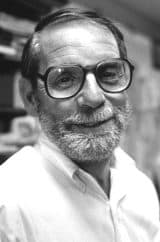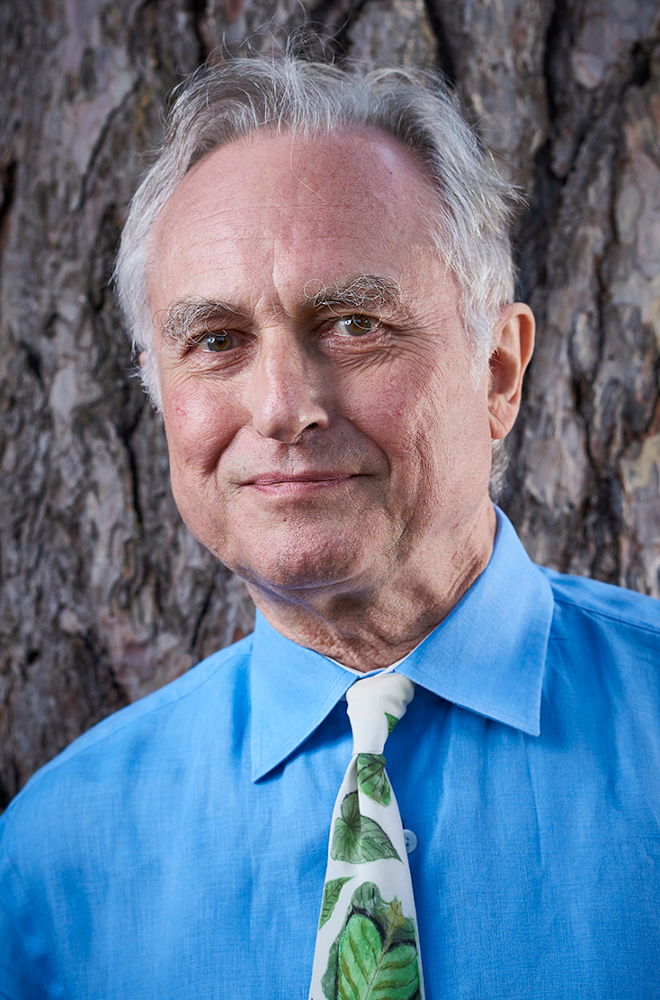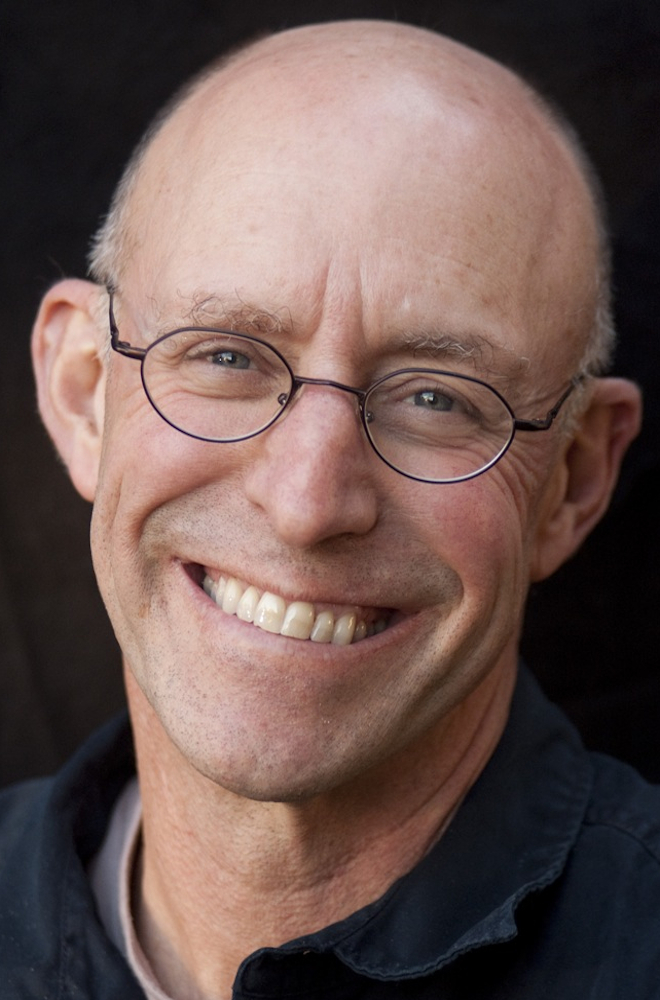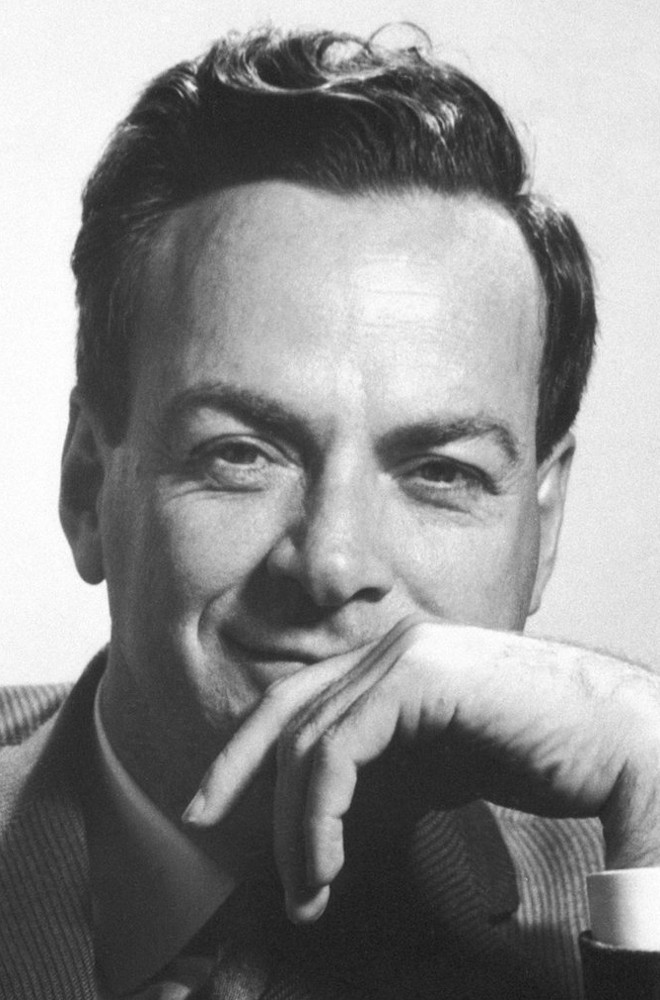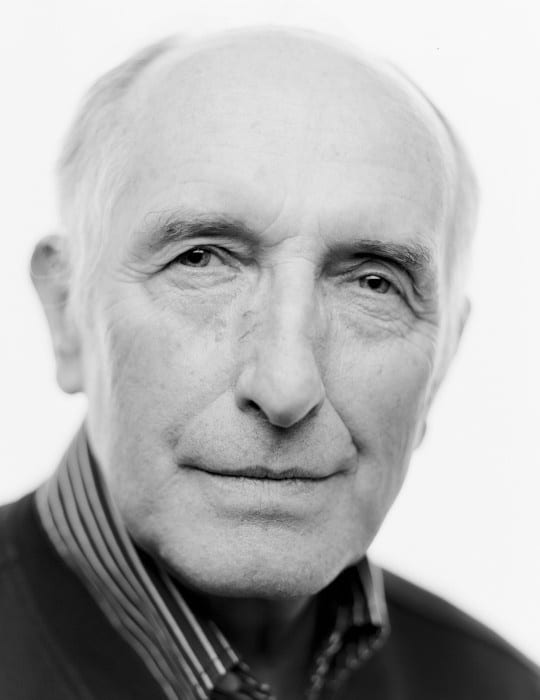 Up in the Mountains
Up in the Mountains
Vaclav Smil is a Czech-Canadian policy analyst and scientist who writes informative non-fiction books as a side job. The scientist researches topics ranging from energy and ecology to historical and public policy studies as well as subjects such as population, food, and economy. He is currently one of the Distinguished Professor Emeritus at the University of Manitoba, the Faculty of Environment.
The writer was born in Plzeň, which was ruled by a Nazi Protectorate at the time, during the Second World War. His mother worked as a bookkeeper and his father was a police officer. They raised Vaclav in an isolated mountain town and the daily tasks that needed to be done in order to continue their life with ease provided the small Vaclav with an early masterclass in his research topics such as resources and efficiency.
For Freedom
After his adolescence, Valvic attended the Faculty of Natural Sciences of Charles University to study in its Philosophy program. There, he would learn all about nature which also helped him later on in his career. He and his wife Eva emigrated to the United States after the Soviets invaded their land. He continued his work here and received a Ph.D. in geography from the Pennsylvania State University in 1971.
Best Vaclav Smil Books
| Photo | Title | Rating | Length | Buy |
|---|---|---|---|---|

|
Energy and Civilization | 9.82/10 | 562 Pages | Check Price On Amazon |

|
Energy: A Beginner's Guide | 9.72/10 | 244 Pages | Check Price On Amazon |

|
Numbers Don't Lie | 9.64/10 | 368 Pages | Check Price On Amazon |

|
Growth | 9.52/10 | 655 Pages | Check Price On Amazon |

|
Energy Myths and Realities | 9.44/10 | 232 Pages | Check Price On Amazon |
Energy and Civilization

 The Evolution of Energy
The Evolution of Energy
We are starting off our article and the first book I am going to be introducing to you will be one of the best selling Vaclav Smil books, Energy and Civilization: A History. The book talks about the concept of energy starting from its most primitive forms and exploring how it evolved through time. The author considers energy to be the only universal currency as it is a necessary resource for anything to happen.
The author starts off his book with the energy exchanges that formed our planet ranging from the movements of tectonic plates to the continuous rains that erode the landscape over time. Then comes the endless photons arriving on our planet from the Sun which are converted into plant biomass as they photosynthesize it. Energy was transformed through simple mechanisms such as this up until the point we humans arrived.
Utilizing External Sources
Thanks to our intellect and the mass of information that we have accumulated over the course of our history, we are able to utilize external sources of energy. Through the use of fossil fuels, we gained access to an unfathomable amount of energy as we also changed the workings of our whole world. This one of the best Vaclav Smil books provides us with countless mind-stimulating observations and is overall a great reading experience.
Energy: A Beginner’s Guide

 Technicalities Rather Than Implications
Technicalities Rather Than Implications
Carrying on with our article, the second piece that I am going to introduce to you will be one of the most popular Vaclav Smil books which is Energy: A Beginner’s Guide. This piece is similar in content to the previous one we went over as you can probably guess by its title. However, there is a big difference in how they handle the subject. This piece concerns itself with the technicalities of energy rather than its implications.
You are now probably asking yourselves what I mean by “the technicalities of energy”. Let me break it down for you by using an example. You do know that the human body, like all original creatures, requires energy to execute its functions. You also know that we get our energy from our food. However, you may not know how exactly this energy conversion happens.
Disturbing Cyclical Systems
Another thing that this book puts a lot of emphasis on is global warming which is, in essence, the result of disturbing the cyclical energy conversion systems on our planet. The author also explains how the smallest actions we do as a part of our daily lives have an effect on the bigger picture. This contender for the best Vaclav Smil book title manages to be as eye-opening as it is intriguing.
Numbers Don’t Lie

 Looking at the World Objectively
Looking at the World Objectively
We are continuing on with our Vaclav Smil book list and Numbers Don’t Lie: 71 Things You Need to Know About the World is the third piece that I have included in it. As is already obvious from its title, this piece has a less focused narration compared to the first two that we went over. Instead of delving into the depths of a subject, Numbers Don’t Lie serves as an example of how we can look at the world more objectively.
Statistics is a big part of our life whether we are aware of it or not. They serve as irreplaceable tools in scientific fields and they are also integrated into our way of living. For example, we are able to check the weather report to see what the weather will be like as far as a month into the future which would not be possible if we had not been collecting data on our climates for decades.
From the Smallest Detail to the Bigger Picture
Of course, the field of statistics also has a much more complicated side. In this book, for example, the author looks at China’s rise in power and influence from a statistical perspective to make an educated guess on whether or not it will continue in the future. He also handles topics such as the average weight of all the cows in the world and the risks of commercial flying which you can not say does not make you curious.
Growth: From Microorganisms to Megacities

 Unspoken and Explicit aim of all Life
Unspoken and Explicit aim of all Life
Next up in our Vaclav Smil book reviews article, we will be taking a look at the book Growth: From Microorganisms to Megacities. In this book, the author takes the concept of growth and examines it in all its meaning. This range includes the growth of individual organisms, ecosystems, and even the biggest societies of our day which are megacities.
This piece makes the notion that growth is the “unspoken and explicit aim of our individual and collective striving”. This statement holds true not only for our species but for all living creatures, all across nature. Vaclav Smil examines countless examples of this phenomenon in nature, in society, and even in history. He also thoroughly examines why and how certain types of growth happen.
A More Scientific Approach
I also want to mention that this book might not be an entertaining read for everyone. The author steers closer to his scientific background in this piece compared to his other work. If you want proof of this, I suppose saying that the materials in this piece are backed by ninety-nine pages of references will be enough to convince you. Still, it is an enjoyable exploration of the concept of Growth if you are not bothered by its style.
Energy Myths and Realities

 Problems of Today and Tomorrow
Problems of Today and Tomorrow
Next up on our list of the best books by Vaclav Smil, we will go over the book Energy Myths and Realities: Bringing Science to the Energy Policy Debate. As you might remember from earlier, Vaclav Smil is a professional policy analyst. A policy analyst identifies problems of both today and tomorrow, and assesses the best ways to deal with them which is exactly what the author does in this piece.
The field of energy is by far the biggest business on the face of planet earth. It is an industry so important that it is not even controlled by private companies but by countries. Wars are waged for oil and natural gas resources, in case you have been living in space for the last two hundred years and did not know it. As such, it is also a very popular topic of debate that is filled with misconceptions and outright lies.
Breaking the Bad News
The author evaluates some of the most popular opinions on the subject and talks about their validity. He does not hesitate to rip apart obvious fallacies in order to promote a healthier, scientifically-backed view on the subject. He also gives us the bad news that others are not too eager to do so; the transition of energy sources is a lengthy process and a global change will require a lot of time as well as money.
Oil: A Beginner’s Guide

 The Fuel of Our Age
The Fuel of Our Age
We are more than halfway through our article and the sixth piece that I will be introducing to you is going to be Oil: A Beginner’s Guide which is one of the best rated Vaclav Smil books. It talks about one of the most critical as well as controversial fuels of our time, oil. As of now, it is the most convenient fuel for motor vehicles and so we have built our infrastructure around it.
Oil is presented in a very bad light in today’s media which does have its reasons. Still, its importance can not be denied both for today and in our history. The modern world was built on oil and it runs on it. The author even argues that without it, there would be no globalization. Whether that is true or not, the world would certainly be unrecognizable if we never utilized the precious black goo.
The Extended History of Oil
The author starts this book off by sharing with us how oil was discovered in the first place. He then explains how it was first utilized and how it transformed over the years. He also explores the countless political debates that were caused or affected by it. He closes it up by giving us a clear picture of where oil stands in the world of today and how it holds up certain parts of our political landscape.
Making the Modern World

 The Workings of Our World
The Workings of Our World
We continue making our way through the best Vaclav Smil books and the seventh book that we will be talking about is Making the Modern World: Materials and Dematerialization. This is one of the most interesting books by the author in my opinion since even though it focuses on a specific subject which is the workings of the modern world, it assesses it from many angles.
One of the most important systems in place for our modern world is the continuous transportation of materials. The trading lines that we have built allow for a global economy that enables us to progress at an unbelievable pace. On the flip side, this exponential growth is also heavily dependent on the constant flow of material as we have lost the need to be self-sustainable.
Vast Context
Making the Modern World explores different angles of what the cost of this dependence is as well as what luxuries it bestowed upon us. The author uses his knowledge on countless subjects including but not limited to; resource economics, manufacturing, material science en even mineral geology. The vast context of the book ensures every reader will find something to love about it.
Made in the USA

 Is Manufacturing Still as Important?
Is Manufacturing Still as Important?
We are slowly coming to the end of our Vaclav Smil books ranked article and Made in the USA: The Rise and Retreat of American Manufacturing is the eighth piece that I have included in it. The author starts off the piece with an interesting proposition, that manufacturing is not a relic from the old times as the digital industry suggests.
Smil boils the subject down to its essence and comes to the conclusion that a strong and innovative manufacturing sector is absolutely required for an advanced economy. He also explains that the United States owes its economic, social, and strategic importance to its earlier role as a manufacturing center. It is undeniable that America served as the driving force behind consumerism.
Consequences of an Abandoned Workforce
The author argues that since the manufacturing sector’s recent decline, the United States has been riddled with a giant wave of unemployment. Thus, he sees it necessary to come up with ideas to help the industry. Some of these suggestions are lowering the tax rates of corporates, improving public education, and promoting research in the field.
How the World Really Works

 Most Fundamental Parts of Our Existence
Most Fundamental Parts of Our Existence
The next piece I am going to introduce to you will be the latest Vaclav Smil book that is How the World Really Works: A Scientist’s Guide to Our Past, Present and Future. In it, the author discusses the most fundamental fields that make up our existence which he thinks is a shame that the general public does not know about already.
As you read the book, you come to the realization of just how solid the author’s scientific understanding is. It is very noticeable that he puts a lot of thought into his words so as to not dim the objectivity of the book by reflecting his own opinion and emotions. He refrains from both hopeful optimism and needless pessimism.
Promoting a Scientific Outlook
The author dissects the fields of energy, food production, and environmental studies as he goes through the latest scientific discoveries, explaining his own research in further detail, and dismembering common sources of misinformation. In his new book, he once again promotes a scientific outlook on the world and reminds us that science is the most reliable source of information we have.
Global Catastrophes and Trends: The Next 50 Years

 Possible Disasters of Tomorrow
Possible Disasters of Tomorrow
We have reached the end of our article and Global Catastrophes and Trends: The Next 50 Years is the last book that I have chosen to introduce to you. It is one of the more unique works of the author since it discusses not a field of study but possible scenarios that could be disastrous for us in the next fifty years.
Some of the catastrophes in the book are easy to grasp such as wars and volcanic eruptions but some of them require more explanation than the others like possible advancements in terrorist attacks and viral pandemics. It also goes without saying that the more complicated a scenario is, the more varied its results can be.
Changes That May Come
There are also trends that stand for changes that happen over time as the result of small but steady forces. Some examples of trends are political shifts, demographic changes, and economic advancements. This contender for the best Vaclav Smil book title talks about these not to plant fear in us but to remind us to pay attention to possible disruptors.
Final Thoughts
The field of non-fiction might not be as popular as other genres but nonetheless, authors like Vaclav Smil can provide us with highly entertaining books. It is also important to remember that authors like him serve a critical role in our society. They ensure that fields of science that are now advancing faster than ever can be simplified and served to the public. I admire and respect Smil’s work and I highly recommend his books.
Michael Englert
Michael is a graduate of cultural studies and history. He enjoys a good bottle of wine and (surprise, surprise) reading. As a small-town librarian, he is currently relishing the silence and peaceful atmosphere that is prevailing.

